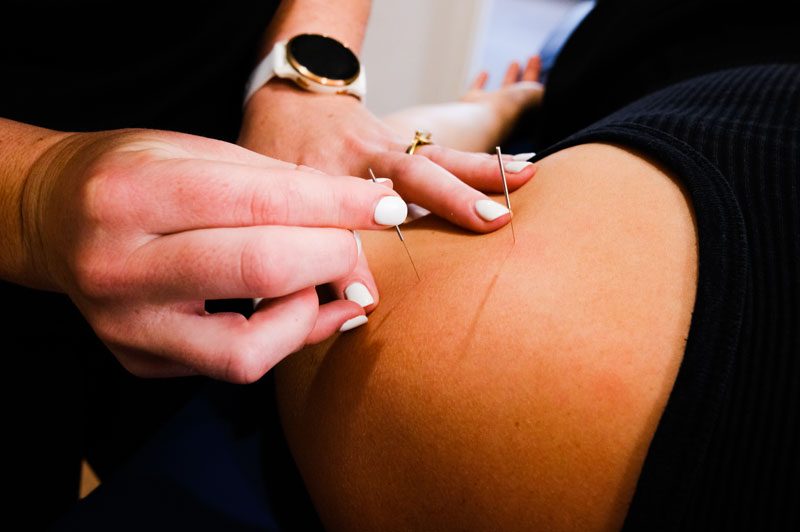Bursitis is an extremely common issue we see at The Physio Rooms – but unfortunately (depending on where you seek your advice) – it is also an issue that often bypasses physiotherapy altogether.
That’s not to say bursitis will ALWAYS resolve with just physiotherapy treatment and management. Sometimes it is most definitely necessary to have a cortisone injection to achieve significant pain relief.
However, the issue with only going down this treatment path, is that bursitis is almost always a SYMPTOM! This means that there is almost always an underlying issue that has contributed to the bursitis and will likely continue to do in the future if not addressed.
What is a Bursa?
Let’s start by understanding more about bursae. Bursae (plural) exist all over the body, and the major ones are located within large joints – such as the shoulder, the hip and the knee.
A bursa is a small sack of fluid that provides both cushioning and a smooth gliding movement within the joint. They prevent the build up of friction that would negatively impact other structures in the joint, including tendons, ligaments and muscles.
When there is a build up of load, friction or impact, a bursa can become inflamed, causing significant pain in that area. This is called bursitis.
Common Types:
Here are some of the common types of bursitis we see in the clinic;
- Sub-acromial (shoulder) bursitis
- Great trochanteric (hip) bursitis
- Prepatellar (kneecap) bursitis
- Pes Anserine (knee) bursitis
- Olecranon (elbow) bursitis
- Anterior and posterior Achilles tendon (back of the heel) bursitis
What Can Contribute to Causing Bursitis?
Most commonly, bursitis is associated with weakened or deconditioned muscles, tendon disruption and/or a possible tear in those muscles/tendons.
It’s also common that those suffering with bursitis have an obvious change in the way they move or their posture (usually due to the weakness or pain).
Ever heard of a Trendelenburg gait? You’ve definitely seen one! This is where a person swings or pops their hips side to side while walking. This is due to weakness in the hip muscles that prevent this side to side sway. It also places an additional amount of load and friction through the side of the hip – leading to bursitis!
Another example of posture or movement impacting bursitis is seen in the shoulder. Hunched, rounded and slouched shoulder or upper back postures can cause impingement in the shoulder, and increased pressure/friction on the bursa, leading to bursitis.
Outside of these causes, it is also possible to develop bursitis from a blow or impact to the affected area.
How Can Physiotherapy Help?
Our physiotherapists can usually pick up pretty quickly if bursitis is the major cause of pain, discomfort or movement limitation, even without a scan – although an ultrasound is required to formally diagnose bursitis.
What we are also are uniquely skilled in, is determining underlying causes – such as posture, weakness, tendinopathy and tears.
Using the above examples – in a hip bursitis, physiotherapy would play a vital role in strengthening the muscles in the hip, improving flexibility around the hip, and correcting the problematic walking pattern.
In a shoulder bursitis, physiotherapy would assist in improving mobility in the upper back and shoulders, strengthening the muscles around these areas, and correcting the ‘rounded’ posture. This includes identifying what might be causing the rounded posture – such as office based work.
Our mantra at The Physio Rooms is “to leave you better than before you were injured!”
Well – this is a perfect condition to describe what that means. Whilst we want to improve the pain immediately – we also want to resolve the underlying issues that brought on the bursitis!
Should I Get a Cortisone Injection?
Cortisone injections are a treatment method often prescribed by GPs that can be a great way to treat bursitis. Ideally, they are performed under ultrasound, and can reduce the inflammation of the bursa quickly.
Pros:
This can often be a very beneficial component of management alongside physiotherapy, particularly if the level of pain is severe, and therefore limiting what you and your physiotherapist are able to do.
It can provide a significant window of pain relief, in which your physio can then effectively assess and treat whatever other issues may be contributing to the onset of your bursitis.
Cons:
More often than not, if the patient is not already seeing a physio – the cortisone injection will be considered a “quick fix” and they do not receive any further advice or management. They may get pain relief immediately – and while this is a fantastic outcome – it does not always last and does not resolve underlying issues.
These patients commonly suffer from another episode of bursitis related pain within a few months, often even within a few weeks.
It’s also worth noting that while worth a shot (pardon the pun), cortisone injections are also not always effective in providing relief – particularly if the bursitis was not the main cause of pain.
What Do We Recommend?
If you suspect you may have bursitis, or it has been confirmed on an ultrasound, we strongly recommend you book in with your physiotherapist before you make the next decision. It may be that your symptoms resolve with the correct advice, treatment and management – saving you the discomfort, cost and hassle of a cortisone injection. If your physiotherapist determines that it is necessary, then it’s a great option alongside their adjacent treatment, management, and rehabilitation. If you’ve already had the injection – that’s okay!
Now is the time to consult physiotherapy to address those sneaky underlying causes, and make sure it’s the first and last time you experience bursitis.

